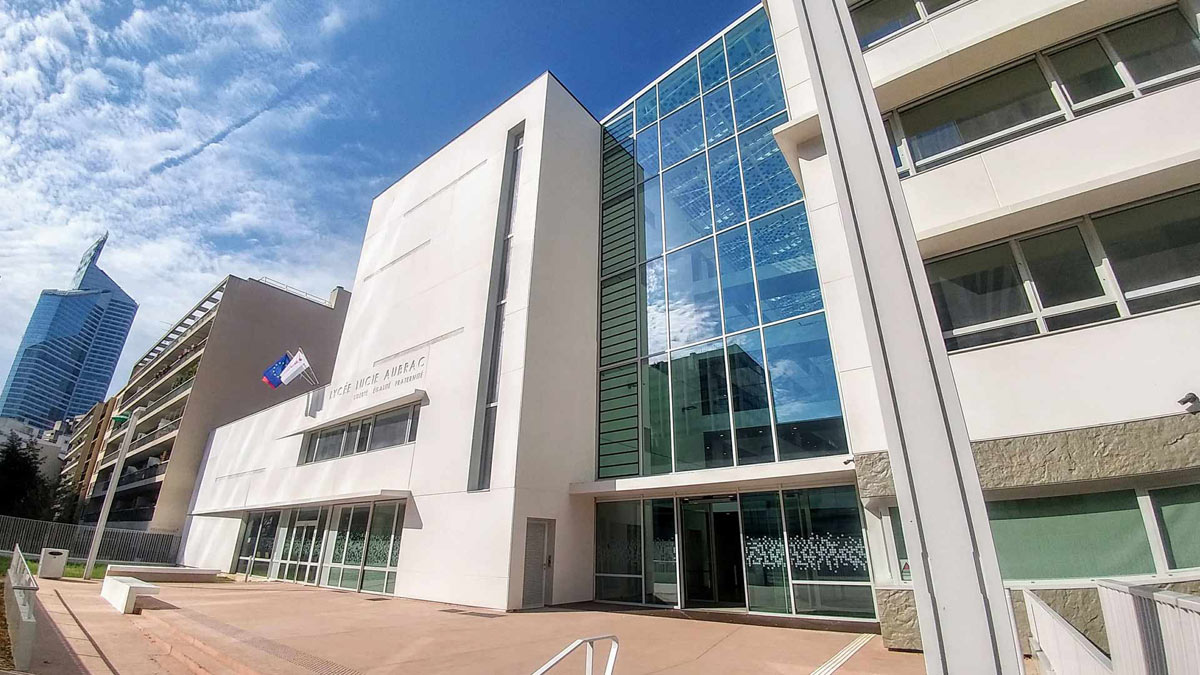
Are you considering moving to the Paris Region with your family? The region's international educational offerings are rich and diverse, providing unique opportunities tailored to the needs of expatriate families. International Sections stand out for their excellence, enabling children to thrive in a bilingual and multicultural environment while immersing themselves in French culture.
Why Choose an International Section for Your Child?
International Sections are bilingual programs integrated into public/state schools and some state-licensed schools. They welcome both French and foreign students in the same classes, fostering linguistic and cultural immersion from an early age. These sections exist at all levels, from elementary school (starting at age 6) to high school, ensuring continuous education for expatriate families on the move.
International Sections aim to facilitate the integration of foreign students into the French school system while preparing them for a potential return to their home education system. They provide advanced proficiency in a foreign language and promote European and international openness. Students benefit from a high-quality education recognized for its excellence and affordability, making it a preferred choice for many bi-national and expatriate families.
What Does the International Section Curriculum Look Like?
International Sections operate under bilateral agreements between France and partner countries. The curriculum consists of two main components:
- Foreign Language Instruction:
Students take several hours of classes per week in the section’s language (English, German, Spanish, etc.). These courses cover specific subjects such as literature, history-geography, and sometimes sciences, taught in the foreign language. - French Language Instruction:
The rest of the program follows the French national curriculum, including subjects such as mathematics, sciences, French, and others, taught in French. This ensures a solid academic foundation while promoting cultural integration.
A Wide Range of Languages Offered
International Sections are available in 18 different languages and cultures, including English, German, Spanish, Italian, Chinese, Japanese, Portuguese, Arabic, and Polish. They are offered in many public and private schools under contract throughout the Paris Region.

Schools such as the Lycée International de Saint-Germain-en-Laye are particularly renowned for their international programs. However, many other institutions also provide an environment conducive to students' development, with modern facilities and high-quality educational support.
Some notable schools include the International Sections of Courbevoie, SIS Paris Ouest (in Sèvres, Boulogne, and Saint-Cloud), GrandChêne International School in Saint-Cloud and Noisy-le-Roi (see our interview), and the International Sections of Fontainebleau (including Anglophone Section and Deutschsprachige Abteilung – German Section).
Recognized Diplomas
Students enrolled in International Sections can obtain internationally recognized diplomas.
- In middle school, they take the Diplôme National du Brevet (DNB) with an "international option"
- In high school, they prepare for the International French Baccalaureate (BFI), a diploma that opens doors to top universities worldwide.
Additionally, some high schools offer "Binational Sections", which should not be confused with International Sections. These are ideal for bilingual students and lead to two secondary school diplomas: the French Baccalaureate and its equivalent in the country corresponding to the section's language: Abibac (French-German), Bachibac (French-Spanish), Esabac (French-Italian). These programs provide dual academic recognition.
An Affordable International Education
International Sections in public schools are generally free, as they are funded by the state. This makes them particularly attractive for expatriate families compared to the often high tuition fees of private international schools. Costs in private schools under contract can range from €1,000 to €6,000 per year, depending on the level and institution.
Dedicated Support for Non-French-Speaking Children
For children who do not yet speak French, specific support systems facilitate their integration:
- Reception Classes and UPE2A: These classes provide intensive French language support, helping students quickly develop their language skills. They are often offered alongside regular courses for gradual immersion. The Pedagogical Units for Newly Arrived Allophone Students (UPE2A) are specially designed to support students newly arrived in France.
- Language Assessment Tests: Upon enrollment, language tests may be conducted to evaluate students' French proficiency, ensuring they receive the most suitable support.
- Personalized Support: Schools often provide individualized assistance, with teachers specialized in teaching French as a foreign language (FLE). This support may include additional lessons, language workshops, and individualized follow-up.
Advice for Foreign Families
For long-term stays in France, integrating into the French school system is highly beneficial for learning French and adapting to local culture. To take advantage of international school programs, families should contact the relevant schools early, as spots are highly sought after. For shorter stays or families seeking specific foreign programs or diplomas (such as the IB or High School Diploma), private international schools may be a better fit, offering familiar educational programs in students' native languages. For the different possible options, see our article " Choosing an International School Step by Step."
The international school offerings in the Paris Region provide numerous opportunities for foreign families. International Sections offer high-quality bilingual education, recognized for its excellence and affordability. With a variety of languages available and internationally recognized diplomas, they are a top choice for expatriate families looking to provide their children with a rich and fulfilling education.
Want to learn more? Consult our guide on international education in Paris Region or contact us for further advice.
For additional information on settling in the region, visit our guide Living in Paris Region to explore housing, lifestyle, and practical tips for expatriates.


